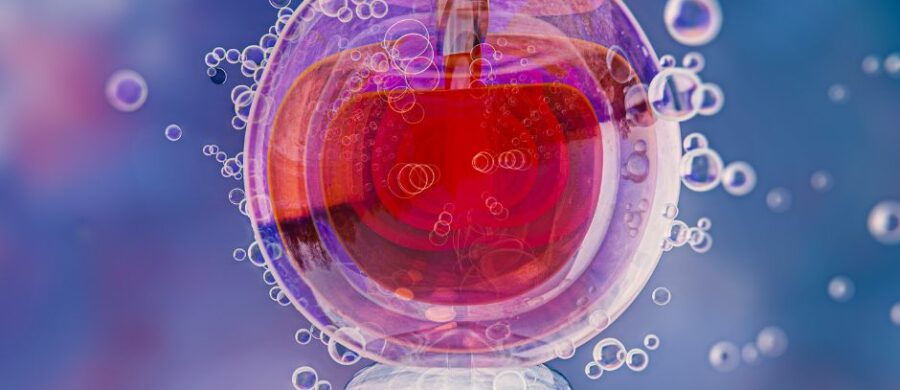After in vitro fertilization, the fertilized eggs (already embryos) are grown in a special medium for 2 to 6 days (liquid containing nutrients), after which they are ready to be transferred into the patient’s uterus. This procedure is known as embryo transfer (ET).
WHAT DOES EMBRYO TRANSFER LOOK LIKE?
Embryo transfer is a quick and painless procedure lasting 15-30 minutes. A speculum is inserted into the patient’s vagina and the cervix is cleaned.
After confirming the patient’s identity, the embryologist aspirates the embryos into a catheter. Then they give the catheter to the gynecologist, who inserts it through the cervical canal into the uterine cavity while visualizing it with an ultrasound.
Once the tip of the catheter reaches the optimal position for ET, the gynecologist deposits the embryos into the uterine cavity. The catheter is then withdrawn and the embryologist checks it to make sure all the embryos have been transferred.
After the procedure, the patient remains for observation in the gynecological chair for about 30 minutes.
WHAT CAN I DO AFTER MY EMBRYO TRANSFER?
After embryo transfer, you don’t need to make any huge changes to your lifestyle. However, it is important to get enough rest, but not to lie down all the time. Avoid strenuous exercise, sex, and hot temperatures (bath, sauna, sunbathing, etc.). Stop drinking alcohol and smoking, and take your prescribed medications.
And most importantly, take time for yourself and your partner, because you deserve it.
SYMPTOMS OF A SUCCESSFUL EMBRYO TRANSFER
The only certain way to know if the embryo transfer was successful is through a pregnancy test. Many women experience pregnancy-like symptoms about a week after ET. However, this is not a guarantee of a positive result, because it may be caused by the hormonal medications that are taken before and after the procedure.
The most common symptoms after ET are:
light vaginal bleeding
breast tenderness
frequent urination
mild abdominal cramping or lower back pain
fatigue
It is also possible to feel absolutely nothing different and still be pregnant.
WHEN SHOULD I TAKE A PREGNANCY TEST?
Many women are tempted to take a pregnancy test the day after the procedure. This is not recommended because you can get a false negative result. The production of hCG (the hormone we test to confirm a pregnancy) begins around the 6th day after embryo transfer.
We advise you to take a pregnancy test no earlier than the 16th day after the procedure, when the hCG level is high enough for the result to be reliable. You can take either a blood test or an at-home pregnancy test. It is important to notify your fertility clinic immediately, even if the result is negative.










